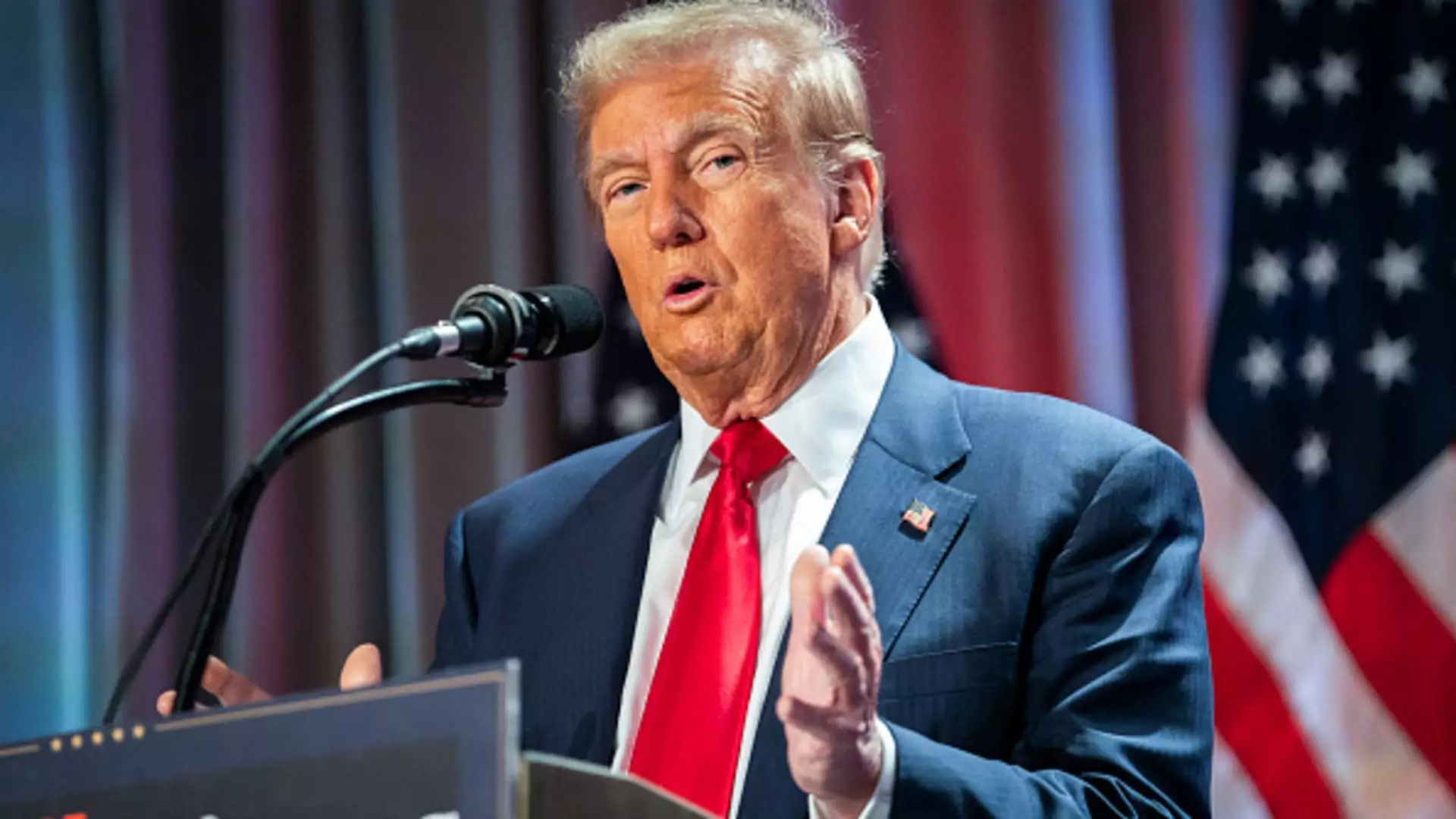As the financial markets navigate through the uncertainties surrounding President-elect Donald Trump’s proposed tariff agenda, investment managers are on high alert. John Davi, CEO and Chief Investment Officer of Astoria Portfolio Advisors, stands out with his proactive stance on the evolving economic landscape. He expresses significant concerns about the inflationary potential of the incoming administration’s policies, urging investors to exercise caution and precision in their investment choices. This illustrates a broader sentiment among financial professionals who are bracing for a turbulent market environment driven by geopolitical changes and domestic policy shifts.
Davi’s investment philosophy pivots towards small-cap industrials, which he believes will outperform their larger counterparts in the forthcoming economic climate. He emphasizes that small companies are more adaptable to changing market conditions, particularly when domestic policies favor local production and development. This perspective seems to resonate with broader market trends, as the Russell 2000 index—a benchmark for small-cap stocks—has demonstrated a notable uptick of approximately 4% since the election. This movement indicates a collective optimism among investors regarding the growth potential of smaller enterprises amidst a backdrop of protectionist policies.
In Davi’s assessment, the election results were a red sweep in favor of pro-growth policies, particularly focused on domestic industries. His conviction leads to an overweight strategy in U.S. equities, positioning them as a better investment option over the next couple of years. “I think that’s the right playbook in the next few years until the midterms,” Davi stated, highlighting his belief in the sustainability of growth driven by local markets. This approach is not just reactive but appears to be carefully crafted with a long-term perspective, acknowledging the significant control that the Trump administration can exercise over economic narratives and policies in the initial years.
Conversely, Davi advises a cautious stance on fixed income assets due to the anticipated challenges arising from a rising budget deficit. His warning about the risks associated with bond investments corroborates a growing concern in the investment community regarding the implications of increased public spending and the potential for rising interest rates. The recent 3% rise in the benchmark 10-year Treasury yield serves as a timely reminder of the shifting dynamics in fixed income markets. Quite simply, a symptomatic analysis reveals that if inflationary measures gain traction, the value of existing bonds would certainly take a hit, urging investors to rethink their strategies.
John Davi’s insights reflect an acute awareness of the multifaceted economic implications of tariffs and government policies. His strategic pivot towards small-cap stocks, a focus on domestic growth, and a cautionary approach to fixed income are tailored to mitigate risks while capitalizing on emerging opportunities. As investors brace themselves for the implications of the Trump administration’s agenda, Davi’s philosophy serves as a meaningful guide amid the uncertainty, reinforcing the importance of adaptability in investment strategies. In a period characterized by volatility and complexity, making informed decisions with a strategic mindset could very well define success in investment outcomes.

Leave a Reply